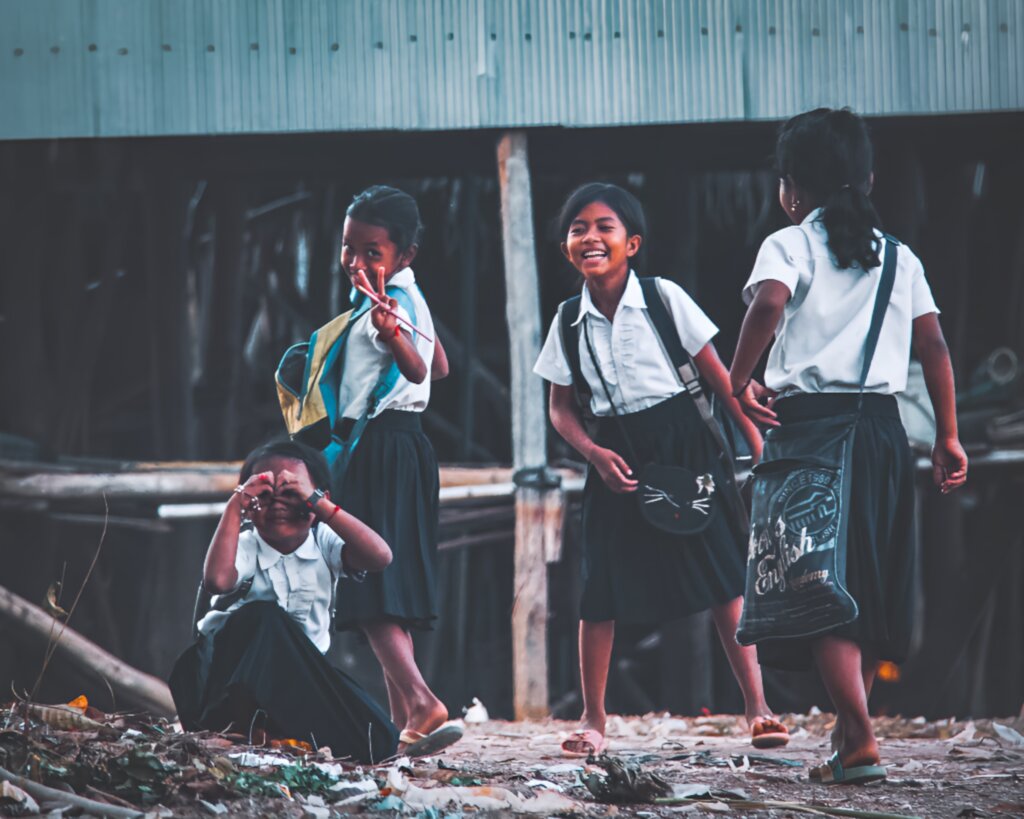By Alan Morgan | Strategic Partnerships Mentor
The This Life in Schools (TLIS) program is a vital initiative by This Life in Cambodia aimed at improving access to and the quality of education in rural Cambodia. The program focuses on revitalizing and redeveloping secondary schools to reduce dropout rates and enhance educational outcomes.
Specific Goals
- Improve Access to Education: Ensure that children and their families feel supported by their community to continue accessing their right to public education.
- Enhance Quality of Education: Engage community members in school development to create a conducive learning environment.
Components and Activities
1. Community Engagement:
- Conduct Community Driven Dialogue consultations with teachers and students.
- Mobilize and train School Support Committees (SSC) and Student Councils (SC).
- Support regular monthly SSC and SC meetings, school exchange visits, and annual reflection visits.
2. School Development Planning:
- Assist SSCs in undertaking school development planning and follow-up on activities.
- Involve SCs and local authorities in the development of School Development Plans (SDPs) and integrate these into Commune Investment Plans.
3. Teacher and Student Support:
- Provide training to school teachers and headmasters.
- Organise learning clubs, financial support, education campaigns, and revise school regulations.
- Conduct meetings with parents and regular home visits.
4. Community Events and Research:
- Support Women’s and Child’s Rights days with community-level events.
- Conduct research to understand the root causes of school dropouts and poor attendance, and identify strategies to mitigate these issues.
Expected Outcomes
- Reduced Dropout Rates: Significant reduction in the number of students dropping out of school.
- Improved Exam Pass Rates: Higher pass rates in exams.
- Increased Student Enrollment: Growth in the number of students attending school.
- Sustainable School Development: Long-term improvements in school infrastructure and educational quality, continuing even after the program exits.
Rural Cambodian communities face significant economic challenges in accessing secondary education, compounded by inadequate government-provided educational facilities and resources. Many families struggle with poverty, making it difficult to afford school supplies, transportation, and additional fees for tutoring and snacks, which are often charged by teachers. This financial burden forces many children to drop out and seek work instead of continuing their education.
The quality of education is further hampered by a severe shortage of qualified teachers in rural areas. Many teachers lack proper training and professional development opportunities, leading to substandard teaching practices. Additionally, the physical conditions of classrooms are often deplorable, with crumbling infrastructure, poor sanitation, and a lack of basic amenities such as clean water and functional toilets. The absence of technology in classrooms further limits students' learning opportunities and their ability to compete in a modern, digital world.
TLIS goals foster community involvement to mobilise and empower local communities to actively participate in their local school’s development and management. This increases access to education for local children and enhances educational quality. By helping local people to mobilise they can create and implement school development plans and Commune Investment Plans to support headmasters, teachers and students. This leads to a significant reduction in dropout rates, higher pass rates in exams, growth in student enrollment and a long term improvement in the school’s infrastructure and quality of education.
The TLIS program employs a community-driven model for school development, focusing on empowering local communities to take ownership of their state schools. The implementation system involves several key collaborating groups and organizations, each with specific roles:
The program follows an annual Action Learning Cycle, which includes training, community events, and regular meetings. This structure ensures continuous learning, adaptation, and improvement of school development initiatives, ultimately aiming to improve access to and quality of education in rural and disadvantaged communities.
TLIS involves a significant number of participants and organizations, and its impact is measured through various quantitative metrics.
Participants and Organizations:
Program Outcomes and Indicators:
Surveys and Feedback:
Articles and News Coverage:
These figures highlight the extensive reach and impact of the TLIS program, demonstrating its effectiveness in mobilizing communities, improving educational outcomes, and fostering sustainable development in rural and disadvantaged areas of Cambodia.
TLIS has achieved significant milestones in improving education quality and access in rural Cambodia. These achievements are evident in the transformation of values, attitudes, and actions among the targeted groups, as well as the empowerment of local communities.
Achievements
Dissemination of Results
Project reports on GlobalGiving are posted directly to globalgiving.org by Project Leaders as they are completed, generally every 3-4 months. To protect the integrity of these documents, GlobalGiving does not alter them; therefore you may find some language or formatting issues.
If you donate to this project or have donated to this project, you can receive an email when this project posts a report. You can also subscribe for reports without donating.
Support this important cause by creating a personalized fundraising page.
Start a Fundraiser